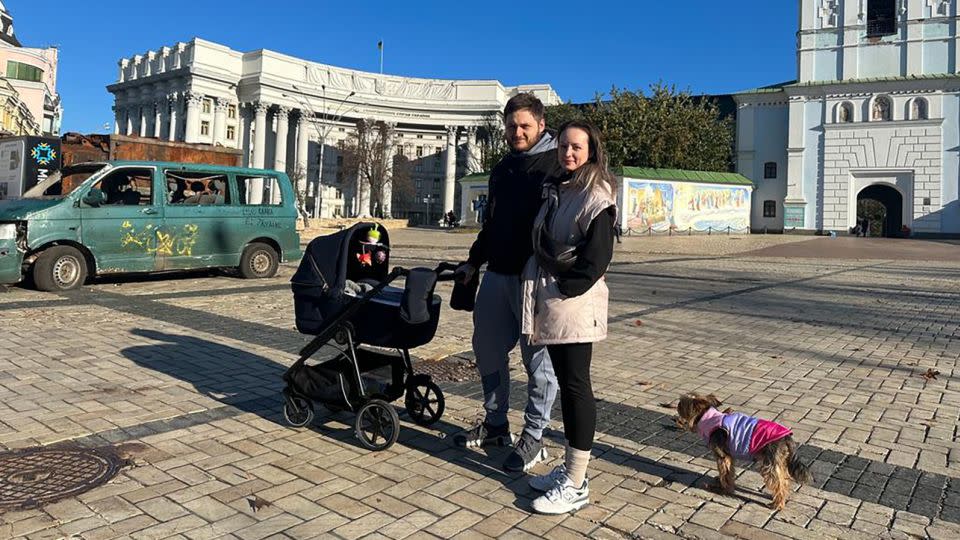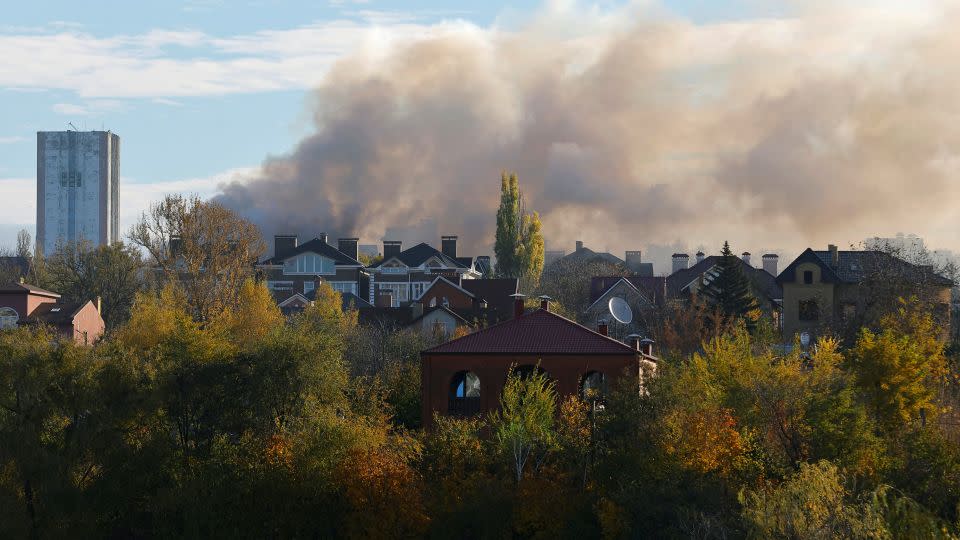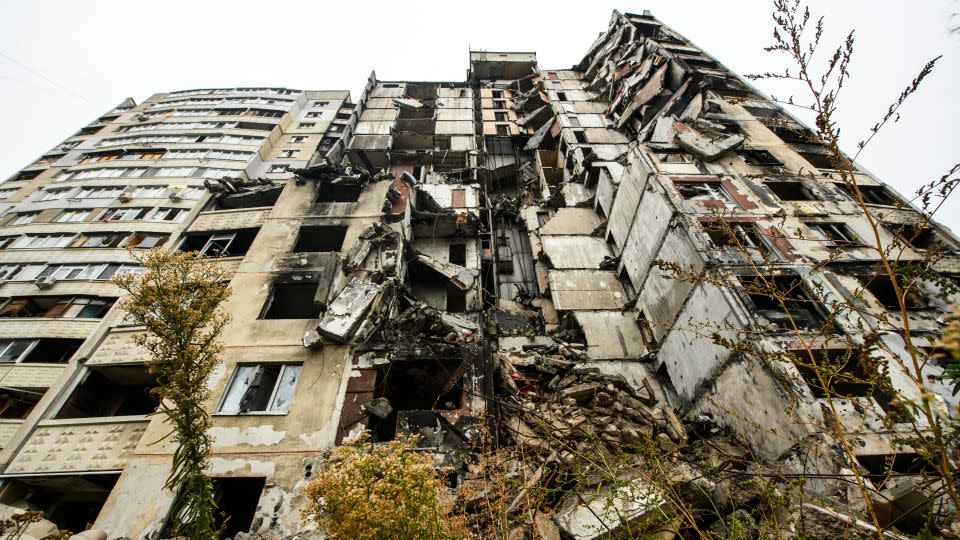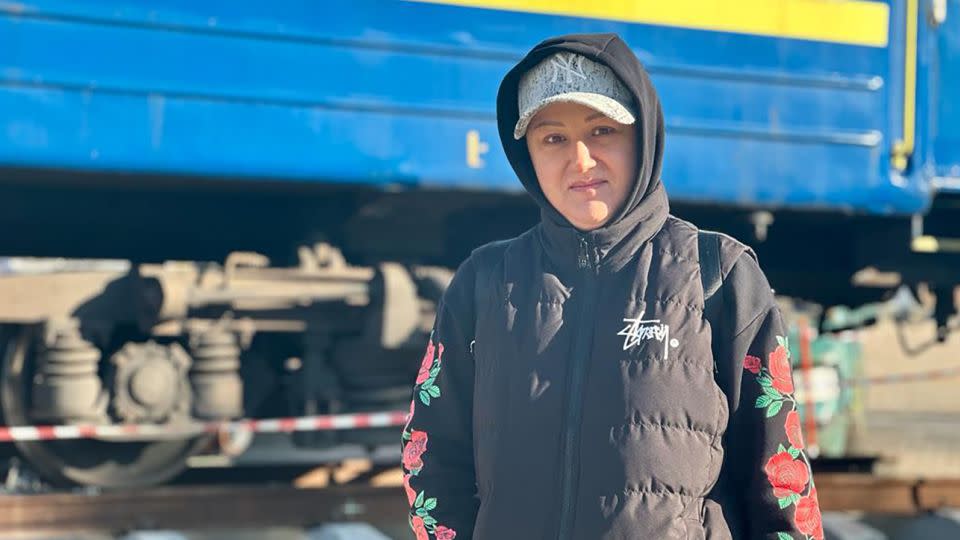Ukrainians face grim reality of a prolonged war with Russia amid battlefield ‘stalemate’
For many Ukrainians, a recent somber assessment of the battlefield by Ukraine’s military chief was not a surprise. It’s what they have been hearing in conversations with friends, seeing on social media and experiencing personally on the frontlines as Russia’s war against their country drags on.
Commander in Chief of the Ukrainian Armed Forces Valery Zaluzhny said in an interview with the Economist magazine this week that “there will most likely be no deep and beautiful breakthrough” and each day that passes gives the Russians an advantage.
The Ukrainian counteroffensive against Russia is stalled as hard winter looms. Russia still occupies nearly a fifth of Ukraine and front lines are static for the most part while both sides continue to churn through soldiers.
Zaluzhny warned that Russia will “have superiority in weapons, equipment, missiles and ammunition for a considerable time” and that Ukraine needs “new, innovative approaches.”
Ukraine launched a counteroffensive against Russia’s invasion in June, but it has so far failed to gain the momentum needed to turn the tide of the war in Kyiv’s favor.
On Saturday, Igor Zhovka, deputy head of the Office of the President of Ukraine, slammed Zaluzhny for his comments.
“I am sure that everything has been carefully read, noted down and conclusions drawn” by the Russians, he said, adding that he has received calls from counterparts in partner countries “in a panic” asking if the war really is at a stalemate. “Is this the effect we wanted to achieve with this article?” Zhovka said.
Ukrainian President Volodymyr Zelensky disagreed with Zaluzhny’s assessment. “This is not a stalemate. I emphasize this once again. We have already talked about this. This is not some kind of news,” he said in a news conference Saturday with European Commission President Ursula von der Leyen.
Zaluzhny’s straight-to-the-point view offered a rare alternative to the hopeful messages that have become commonplace from Ukraine’s political leadership. Almost every night, Zelensky appeals to the public to keep believing in the country’s potential victory.
But for many Ukrainians, that goal seems elusive for now.
CNN spoke to Ukrainians about the potential for a prolonged war and the hope they still have as the conflict reaches what Zaluzhny called a “stalemate.”

Vitalii Shevchuk’s family members fled to safety, but their home was destroyed under Russian occupation in the town of Hostomel near Kyiv at the start of Russia’s full-scale invasion last year. Those days were filled with terror, he said. The situation may be better now but the truth of where the war stands “must be accepted, whatever it is,” he told CNN.
“There seem to be two realities: one is the optimistic one broadcast by the national telethon,” Shevchuk said, referring to the only official news broadcast jointly conducted by several major Ukrainian TV channels. “The other is about the true reality.”
Shevchuk said that when Russia annexed Ukraine’s Crimean Peninsula in 2014 and occupied parts of Donetsk and Luhansk region that year, the fight seemed distant for many Ukrainians. But now even as the war moves into what Zaluzhny described as “positional warfare,” Shevchuk is convinced it will remain on everyone’s minds.
“I believe in Ukraine’s victory, but we have to take into account the objective reality… As for Zelensky’s positive predictions, they made sense. Because if we all walked around with our heads down, saying that everything is bad, everything is wrong, then eventually it would have happened,” he said. “Zelensky’s role was to raise morale, and if this spirit was not there, what would people have been holding on to?”
Reading Zaluzhny’s thoughts on where the battle stands, a deputy commander for an artillery unit near Bakhmut didn’t feel the need to pass the words on to soldiers serving under him. It was all very “obvious,” the deputy commander who spoke to CNN said on the condition of anonymity because he is not authorized to speak to the media without permission.

“Where we are standing, we constantly feel the superiority of the Russians, both in reconnaissance and firepower. They have a huge amount of cannon artillery. They are inferior in accuracy, this is a fact, but they are superior in the number of shells. Especially recently, the difference is noticeable, as we receive less and less ammunition,” he said.
Zaluzhny said in the Economist interview that the strategy to deal a heavy blow to Russian troops in order to bring Moscow to the negotiating table may have failed. “That was my mistake,” he said. “Russia has lost at least 150,000 dead. In any other country such casualties would have stopped the war.”
‘They don’t pay attention to the losses’
The deputy commander admired Zaluzhny’s candor.
The general “dared to say that he made a mistake. This is worth a lot. You have to be a brave person to admit that the plan failed,” he said. “(Russians) don’t pay attention to the losses, and they keep pushing on.”
“Zelensky is not a military man, in my opinion. And from his point of view, he did everything right. Every day in his addresses, he paid attention to the most difficult front-line areas and the brigades doing the hardest work. To some extent, this raised the spirit of the soldiers.”
Lyuba Shipovich, the director of Dignitas Fund, a foundation focused on providing support for the Ukrainian military with drones, tactical medicine and communication devices, spends her days looking for technological solutions that will give soldiers an edge on the front lines.
“We have fewer people than our enemy and we value them more. People should be taken out of the very front (of the) front line and replaced with intelligence and recco drones, automated attack systems, self-destroying drones and bombers,” she told CNN. “(Personnel) should be hidden in the back end of the front line, because for us human life is much more valuable in all senses.
“So, we need help from Western partners in providing us not only (with) weapons, but also the technology for these weapons,” she said.
In a recent interview with TIME, Zelensky said that “nobody believes in our victory like I do. Nobody,” adding that instilling those beliefs in Ukraine’s allies “takes all your power, your energy.”
According to the latest statistics, between 5.6 million and 6.7 million Ukrainians who fled the country because of the war remain abroad. For them, the developments on the battlefield and the likelihood of the war ending are key factors in determining the possibility of returning home.

Kyiv resident Iryna Avramets, 34, was pregnant with her first child when the war broke out. She stayed in Ukraine to give birth to her daughter, but left for Spain soon after. The war’s stalemate, with no clear end in sight, makes it less likely she will return soon.
“On the one hand, it is predictable that the war will drag on, although it is difficult to admit it,” Iryna said. “We just listen, analyze and understand that we will not be returning home soon.”
Iryna says that it is good to know the objective picture that Zaluzhny described, but it is equally important to remain optimistic. She thinks Zelensky is helping Ukrainians do exactly that.
“Zelensky, for his part, is doing his best to give faith to the people so that we do not give up,” Iryna said.
Oksana Yarosh from Kharkiv believes the Ukrainian president has been “sugarcoating” the situation for far too long. “The absence of (the) bad news that is in fact a daily reality is terrifying,” she told CNN.
Many of the issues about Ukraine’s mobilization and training of reserves simply don’t get talked about publicly, she said. Problems being “openly ignored” makes fewer and fewer people willing to sign up and fight.
“I understand that it is important to reduce the level of panic among civilian Ukrainians, but unfortunately, this contributes to attention going elsewhere, and complacency,” she said.

Natalia Kovalchuk, a Kyiv resident, appreciates the Ukrainian president keeping spirits high through the turmoil.
“The positive sentiment that Zelensky gave to people is needed,” she told CNN. “But it is very unfortunate that there were many expectations from this counteroffensive. People were so much inspired that we are about to return Crimea, we are about to drive the Russians out of our land, and this did not happen.
“I think a lot of people understood that many of their hopes were unrealistic, but they were afraid to admit that this war was going to be a long-term one.”
CNN’s Gul Tuysuz contributed to this report.
For more CNN news and newsletters create an account at CNN.com


